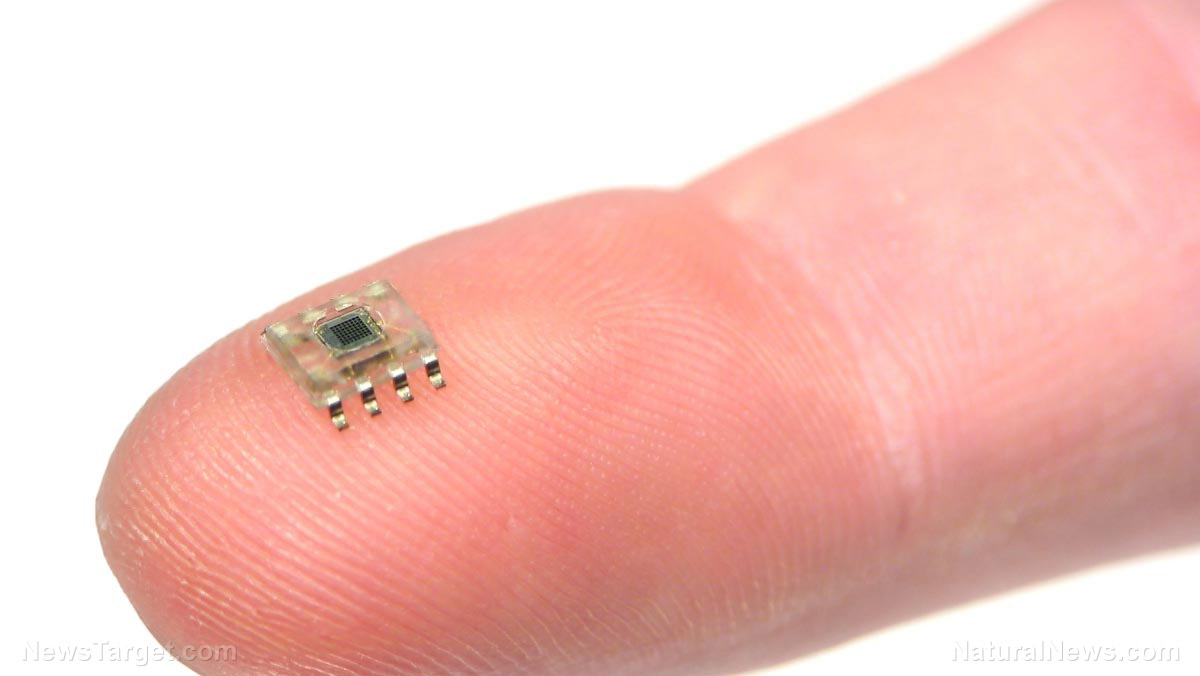Subconscious manipulation: Advertisers to use “dream-hacking” techniques to promote brands
04/28/2022 / By Kevin Hughes

Advertisers are planning to employ “dream-hacking” techniques to promote brands. A recent essay by researchers from Harvard University, the University of Montreal and Massachusetts Institute of Technology (MIT) in Aeon Mag said about 77 percent of all marketers and advertisers plan to use the strategy within the next three years.
The essay focused on the latest Molson Coors beer marketing campaign, where the company gave free beers to people in exchange for taking part in a “dream incubation study.”
Participants of the dream study had to watch a brief marketing video that showed talking fish, hypnotic visuals, mountainous landscapes and dancing beer cans looking like something from a wild PCP trip. The video also featured One Direction star Zayne Malik livestreaming himself falling asleep while watching the video on Instagram.
“We now find ourselves on a very slippery slope. Where we slide to, and at what speed, depends on what actions we choose to take in order to protect our dreams,” the scientists said in the Aeon Mag essay.
The scientists went on to say that they are “baffled by the lack of public outcry over the mere idea of having our nightly dreams infiltrated, at a grand scale, by corporate advertisers,” adding that what was once “science fiction” has now become a reality.
Analysts foresee the procedure will be imposed in the same way the American Federal Trade Commission imposes its federally mandated rules opposing the use of untaught consent of subliminal advertising.
Subliminal advertising has been banned in many nations around the world because of the ethical issues about the act of implanting thoughts into an individual’s subconscious without their consent. Dream incubation has been applied by several ancient cultures and it goes back more than 4,000 years to ancient Egypt.
“Sleepers lay in sacred beds in the ?aqq?rah Serapeum to receive divine dreams; to ancient Greece, where ailing people went to dream in oracular temples; to today, where dream incubation plays a key role in healing, therapeutic and spiritual practices such as yoga nidra and Mohave shamanism,” Aeon Mag stated.
Dream advertising could soon turn into a nightmare
A group of sleep researchers said the next frontier for advertising isn’t virtual reality or holograms, but human dreams. And they warned that this method could soon turn into a nightmare. (Related: Can the wrong food give you nightmares?)
The scientists, in an open letter published on op-ed website DXE, denounced the concept of dream advertising in which companies come up with ads into a person’s subconscious through audio and video clips. They pointed out in the letter that not only does the method already exist, but a beer company has publicly tested it out in the lead-up to Super Bowl LV last year.
The sleep researchers mentioned a real bizarre February 4 press release as an example. In the release, Molson Coors Beverage Company, which owns well-known brands like Coors Light, Miller Lite and Blue Moon, acknowledged that it could manipulate human dreams so people can collectively see visions of alcoholic beverages dancing through their heads.
The release stated that it was no surprise “the stress of the pandemic has caused many people to have difficulties sleeping and, in turn, experience weird, bizarre dreams called “quarandreams.” Typically we can’t control what we dream about, but what if we could? Coors Light and Coors Seltzer want to ensure you’ll have a refreshing dream using the science of guiding dreams.”
In their letter, the sleep scientists expressed worry about this kind of invasive dream advertising.
“As sleep and dream researchers, we are deeply concerned about marketing plans aimed at generating profits at the cost of interfering with our natural nocturnal memory processing,” the group said. Writing the letter were three researchers from MIT and Harvard while dozens more sleep researchers from around the world signed it.
According to sleep researchers, targeted dream implantation has a history that dates back thousands of years – especially among groups who valued dreams for spiritual practices. At present, scientists have completed experiments showing the actual ways in which dreams can affect waking lives. This means implanting dreams can alter real-world outcomes.
Watch the video below to know about lucid dreaming.
This video is from the ActOn Energetics channel on Brighteon.com.
More related stories:
7 of the most common dreams and what your subconscious may be trying to tell you.
Scientists explain why we easily forget our dreams.
Remember, and even control, your dreams with 3 easy steps to lucid dreaming.
6 Pressure points to activate for a good night’s sleep.
Separating fact from fiction: Sleep expert debunks popular sleep myths.
Sources include:
Submit a correction >>
Tagged Under:
brain function, brain health, conspiracy, dangerous, deception, dream advertising, dream incubation, dream-hacking, evil, future science, insanity, mass hypnosis, mind body science, mind control, nightmare, sleep research, subliminal advertising
This article may contain statements that reflect the opinion of the author
RECENT NEWS & ARTICLES
COPYRIGHT © 2019 Dangerous.News
All content posted on this site is protected under Free Speech. Dangerous.News is not responsible for content written by contributing authors. The information on this site is provided for educational and entertainment purposes only. It is not intended as a substitute for professional advice of any kind. Dangerous.News assumes no responsibility for the use or misuse of this material. All trademarks, registered trademarks and service marks mentioned on this site are the property of their respective owners.




















